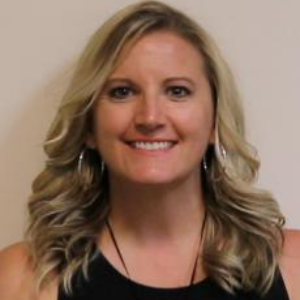Title : Developing a faculty led student mentoring program for ASN students
Abstract:
The demand placed on prelicensure nursing students is overwhelming in the fast paced, dynamic, and often stressful academic setting. Mentoring in general has been recognized throughout education literature as a valuable tool to improve performance, increase retention, and enhance overall student success. While there is a plethora of research on mentoring new nursing faculty, there is little to be found in the literature regarding faculty-led mentoring of nursing students. Of the literature reviewed, a few articles supported faculty-student mentoring relationships but focused solely on the clinical environment. Because the clinical experience is only a small subset of the overall educational experience of nursing students, it became evident that additional faculty support in formalized mentoring relationships may be beneficial for prelicensure students in an ASN program. This study focuses on the creation, implementation, and ongoing evaluation of a faculty-led mentoring program for prelicensure nursing students at one university.
Through a cross-sectional survey of students across four semesters of a prelicensure nursing program, a faculty-led student mentoring program is being implemented, based upon student-expressed needs, and informed by the mentoring literature and faculty input. Students provide feedback each semester to evaluate their changing support needs and preferred mentoring delivery methods. This pilot program is being developed and tailored to the areas demonstrating the most significant benefits to students.
Over subsequent semesters of nursing school, participating in a mentoring program as students will create a strong foundation as those same students become nurses in the profession and eventually, the mentors of the next generation. This can ultimately strengthen the nursing profession by creating a milieu of support that begins with students’ first entry into their prelicensure program.
Audience Take Away Notes:
- Demonstrate the need for a faculty-led student mentoring program in the ASN program through student feedback and a review of the literature.
- Due to recent substantial growth of the ASN program, students' needs were identified by leadership and faculty.
- Although mentoring is generally recognized as an important way to engage students and promote success, current nursing literature shows little evidence that formal faculty-led student mentoring programs exist in prelicensure programs.
- Faculty felt unprepared to address the needs of students.
- Evaluation/Feedback: Identify deficits in ASN programs and student needs that mentoring could address.
- Describe the process of creating a faculty-led student mentoring program.
- Students were surveyed to determine their mentoring needs and their preferred methods of mentoring.
- Faculty were recruited and trained as mentors.
- Available department and university resources were identified and aligned with individual student needs.
- Share preliminary findings and lessons learned from the faculty-led student mentoring program.
- From a needs assessment survey, specific mentoring opportunities not currently available were created for students.
- Review the barriers of data collection and creation of a mentoring program and discuss how mentoring options could be improved for future implementations.
- Describe successful aspects of the mentoring program creation and implementation.
- Present plans for the future of the faculty-led student mentoring program.



